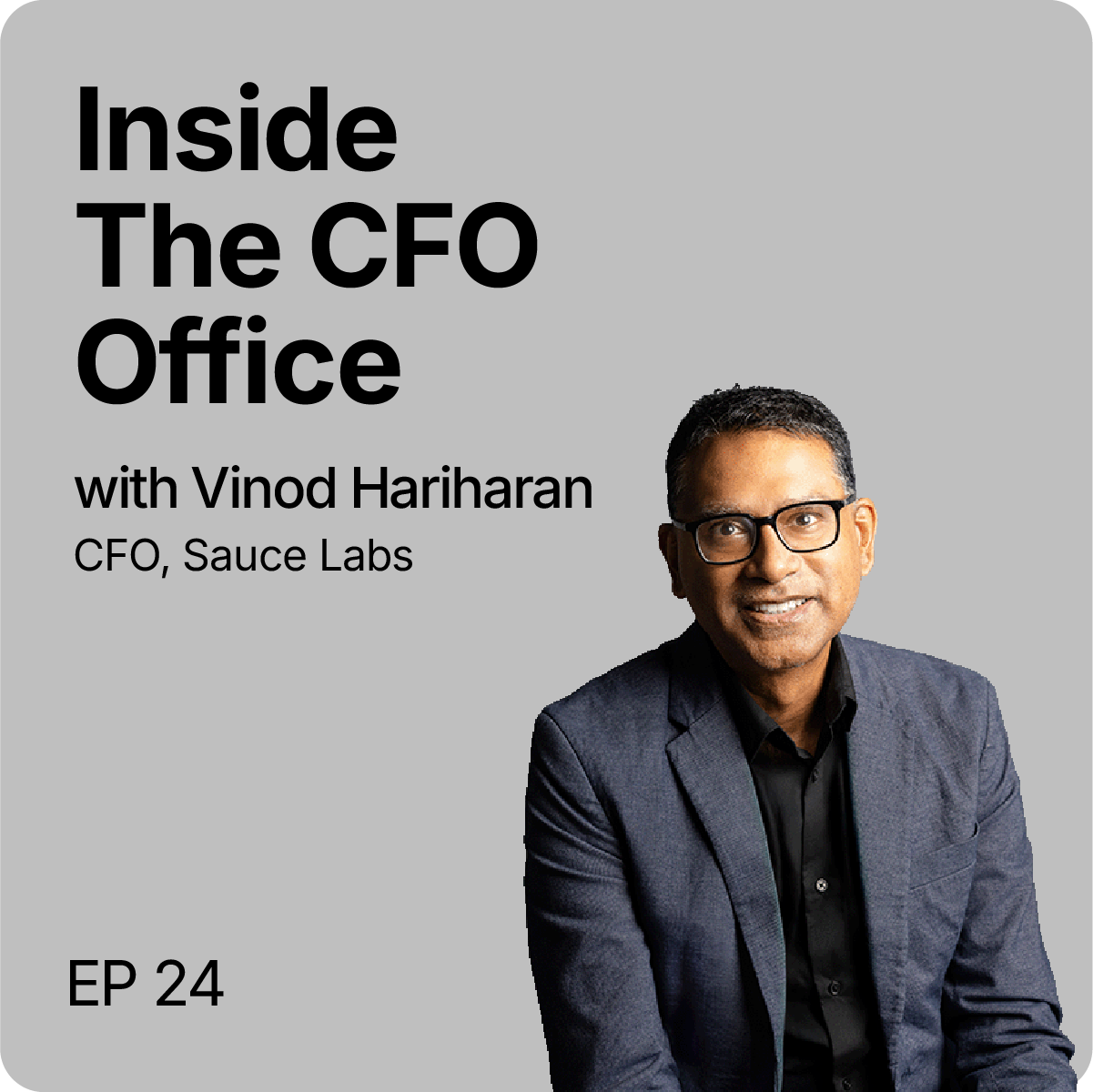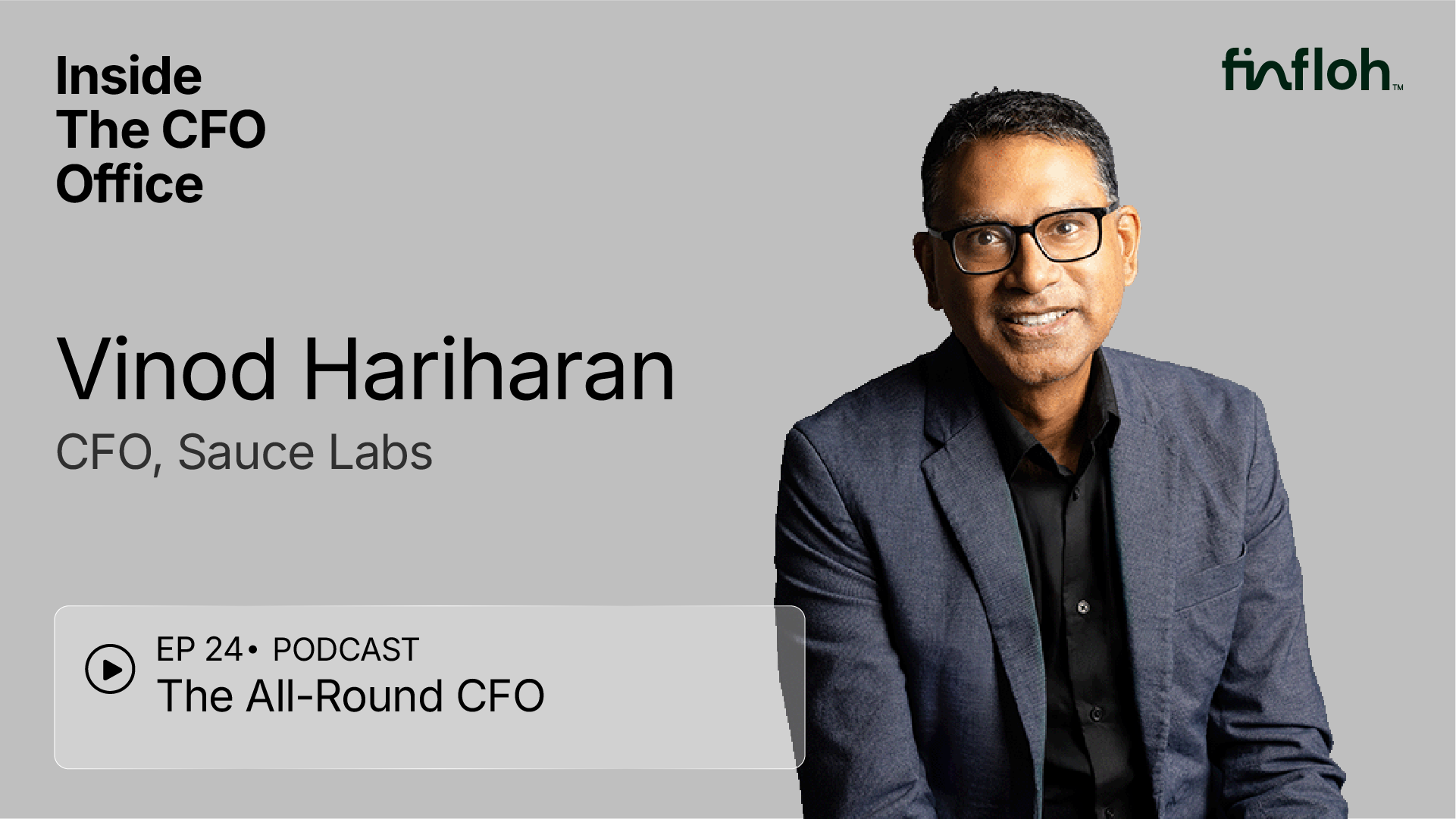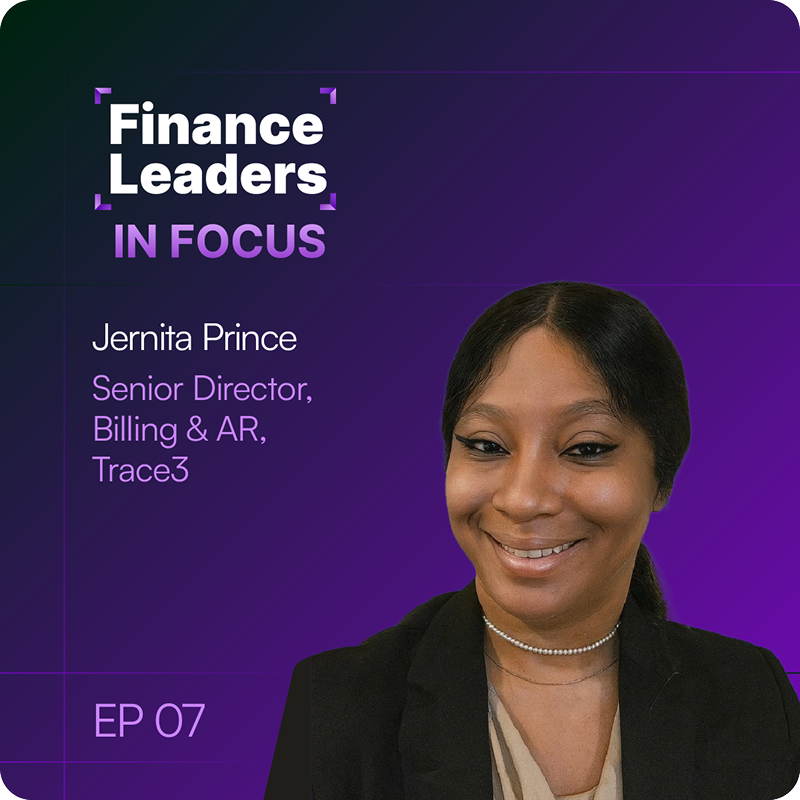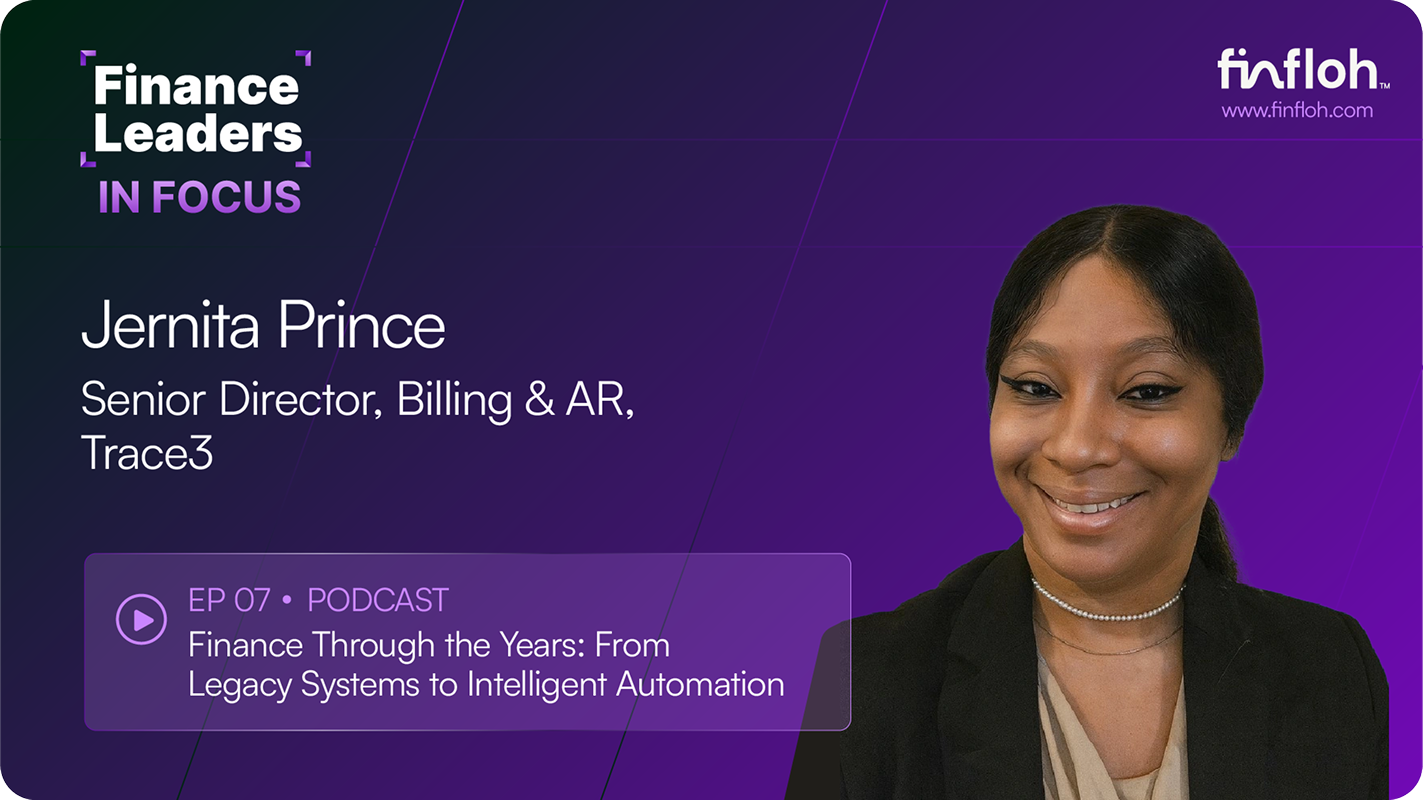The Role of a CFO in growth beyond Series A
Chapters
Key Takeaways
- Jon’s journey from intern to CFO and key turning points along the way
- Two of the biggest challenges he’s faced in his finance career
- How the CFO role evolves as companies scale beyond Series A
- The future of Quote-to-Cash and challenges in QTC processes
- His experience at RepeatMD and its mission to empower aesthetic & wellness practices
- Thoughts on improving today’s accounting software stack
- Advice for aspiring finance leaders in a fast-changing landscape
Speakers

Guest Speaker
Jon Gross
CFO, RepeatMD

Hosted By
Amartya Singh
CEO & Cofounder, FinFloh
Episode Transcript
Amartya Singh: Hello everyone! I'm your host, Amartya Singh, Co-founder and CEO of FinFloh, a product built by and for modern finance teams. Welcome to the eighth episode of Inside the CFO Office, an exclusive platform where finance professionals gain insights into the journeys of finance leaders—their biggest challenges, lessons learned, and the evolving landscape of finance.
In today’s episode, we dive into the role of a CFO in growth beyond Series A with Jon Gross, CFO at RepeatMD. Jon’s finance leadership spans multiple industries, from investment banking and private equity to health, manufacturing, and fintech. With more than 15 years of experience, he has been instrumental in guiding businesses through different growth stages, handling M&A, operations, data strategy, and financial leadership.
Currently, Jon leads finance at RepeatMD, an innovative platform that automates revenue generation for aesthetic and wellness practices. Previously, he has held finance leadership roles at Keem, Redesign Health, The Riverside Company, and Piper Jaffray. His vast experience across M&A, financial operations, and data-driven decision-making makes him a powerhouse of knowledge for today’s conversation.
So, welcome, Jon! I’m excited to dive into your journey and perspectives.
Jon Gross: Thanks, Amartya! I appreciate the opportunity to be here. This is a topic that’s close to my heart, and I’m excited to jump in.
Amartya Singh: Let’s start with your career journey. You’ve transitioned from investment banking to CFO roles in high-growth startups. What were the defining moments that shaped your path?
Jon Gross: Absolutely! My journey started in investment banking and private equity, where I worked on high-stakes deals, capital raising, and M&A. However, over time, I felt the urge to move beyond transactions and build something from the inside. That led me to operational finance roles, M&A strategy, and eventually, CFO leadership.
At RepeatMD, we help aesthetic and wellness practices scale their revenue by creating their own branded mobile apps, complete with rewards programs, memberships, treatment packages, and patient financing options through our partnership with Affirm. In essence, we enable practices to engage with patients beyond their office visits, driving loyalty and business growth.
Amartya Singh: That’s fascinating! Having worked across startups and enterprises, what would you say are the key differences in how CFOs operate in these environments?
Jon Gross: Great question! The CFO role varies dramatically between startups and large enterprises.
Enterprises focus on stability, compliance, and long-term financial planning. The role is structured, with robust FP&A processes, risk mitigation, and regulatory focus.
Startups, on the other hand, operate in a high-growth, execution-driven environment. The CFO must balance cash flow management, investor relations, and scaling operations—all while navigating uncertainty.
I love working in Series A and beyond because it’s the right mix of product-market fit and the challenge of building for scale. It’s an exciting phase where financial leadership directly influences growth and company trajectory.
Amartya Singh: That brings me to the next question—how do you see the CFO’s role evolving as a company scales beyond Series A?
Jon Gross: The role evolves significantly as the company grows. At Series A, the CFO is deeply involved in cash flow management, budgeting, and ensuring financial discipline. As the company moves to Series B and beyond, the focus shifts towards strategic investments, scaling revenue operations, and preparing for larger funding rounds or exits.
One of the biggest challenges is sequencing growth decisions—knowing when and how to invest rather than just saying ‘yes’ or ‘no’. It’s about balancing risk and opportunity to fuel long-term success.
Amartya Singh: That’s a great insight. Speaking of strategy, let’s talk about financial systems and automation. How are you leveraging technology at RepeatMD?
Jon Gross: We’re in the midst of a major financial systems upgrade—migrating from QuickBooks to NetSuite and integrating Salesforce CPQ. Our goal is to create a streamlined, data-driven financial ecosystem that reduces friction between sales, finance, and operations.
My philosophy? Fewer systems, fewer integration points. The more fragmented your financial stack, the harder it is to maintain data integrity and generate accurate insights.
Amartya Singh: That makes complete sense. AI and automation are transforming finance. What’s your take on AI’s role in financial operations?
Jon Gross: AI is going to be a game-changer for finance teams. From automating collections and reconciling transactions to predictive analytics and financial modeling, AI can significantly reduce manual workload and improve decision-making. However, we’re still in the early stages of its full potential.
The key is building a strong data foundation before layering AI on top. If your data isn’t clean and structured, AI-driven insights won’t be reliable.
Amartya Singh: That’s a great point. Before we wrap up, what advice would you give to finance professionals looking to step into CFO roles?
Jon Gross: A few things come to mind:
1️⃣ Develop range – Build expertise across finance, strategy, operations, and data analytics. The more problems you can solve, the more valuable you become.
2️⃣ Be proactive – Always come prepared with insights, not just numbers. A great CFO anticipates challenges and provides solutions before problems arise.
3️⃣ Embrace technology – AI, automation, and financial systems will shape the future of finance. Stay ahead by continuously learning and experimenting with new tools.
4️⃣ Enjoy the journey – Things won’t always go according to plan, but the learning and experiences along the way are what make the ride worthwhile.
Amartya Singh: That’s fantastic advice! Jon, it’s been a pleasure having you on the podcast. Thanks for sharing your insights and experiences.
Jon Gross: Thanks, Amartya! I really enjoyed this discussion. Looking forward to staying connected.
Amartya Singh: And to our listeners, thanks for tuning in to Episode 8 of Inside the CFO Office. Stay tuned for more thought-provoking conversations with finance leaders. Until next time, take care and stay curious!
Latest Episodes






Explore the Full Potential of FinFloh
Supercharge Your Receivables Performance